Toward plastic recycling
In order to make plastic containers and packaging sustainable, we are making them lighter and shifting to biomass and other easily recyclable materials to reduce their burden on the environment.
Social issues & megatrends
Every year, an estimated 8 million tons* of plastic waste end up in our oceans. By 2050, the amount of plastic in the ocean is projected to exceed the total amount of fish.

WWF UK website, “Why Is Plastic Pollution a Problem?”, Neufeld, L., et al. (2016)
Yakult's commitment
We are committed to reducing our use of plastic containers and packaging in Japan by 30% compared to fiscal 2018 levels, or making them recyclable, by 2030.

Our initiatives
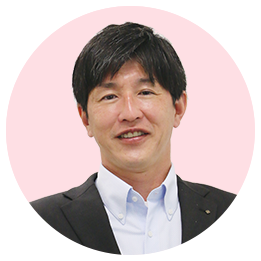
We will work hard to make Earth-friendly recycling a reality!
Naoya Tonegawa
Manager, Environmental Promotion Department
In January 2019 the Yakult Group announced the Declaration of Action on Plastic Recycling. Since then we have been promoting effort to change the materials of our containers and packaging and to make them more easily recyclable.
- Increase use of biomass materials
- Create thinner shrink labels, and increase use of recycled PET
- Reduce amount of plastic spoons and straws provided with products, except in special cases
- Engage in plastic recycling initiatives through equity participation in R Plus Japan
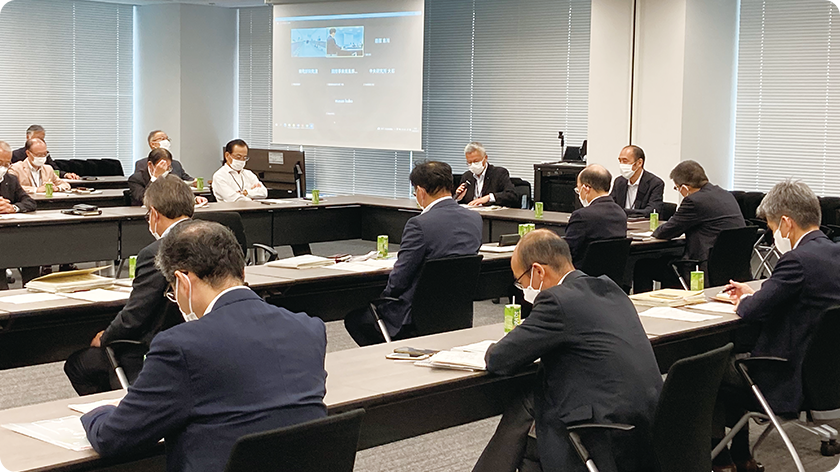
The Recycling Promotion Committee in discussion
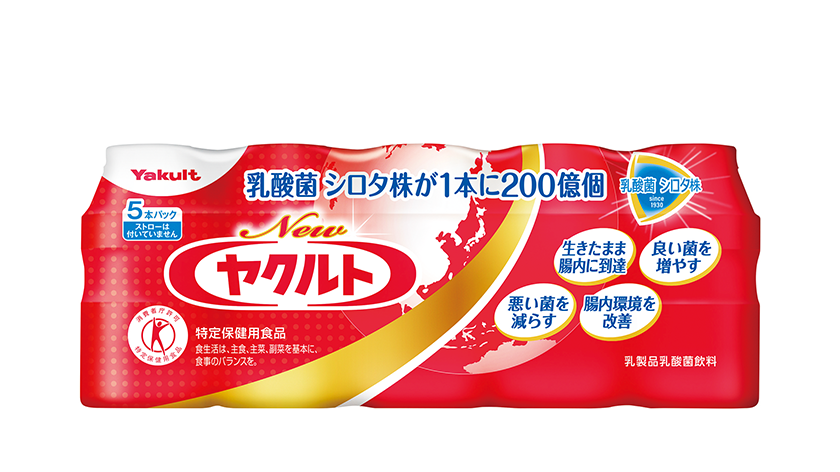
Straws are no longer provided with New Yakult
Close-up: Recycling reforms for containers and packaging
Our efforts to reduce our use of plastic containers and packaging in Japan by 30% compared to fiscal 2018 levels, or make them recyclable, by 2030, involve cooperation across departments to reform container and packaging recycling. Below, managers involved in these initiatives discuss their thoughts and expectations for the future
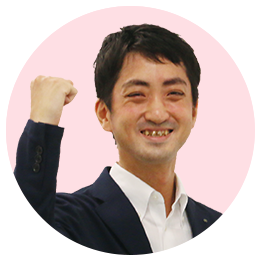
My eco actions:
I don't leave the water running, I turn off electronics when they're not in use, and I take my own bag and water bottle with me when I go out.
Toshiyuki Harada
Assistant Manager,
Development
Department
Toshiyuki Harada
Assistant Manager, Development
Department
Seeking further reduction in petroleum-based plastic use
The Development Department is involved in numerous initiatives regarding plastic containers and packaging. Along with the technical side of new plastic container and packaging development, our department is also investigating ways to reduce overall plastic use, implement biomass materials and recycle resources. I was in charge of introducing 20 μm polystyrene shrink labels, the world’s thinnest, for New Yakult and Yakult 400 series products. These shrink labels reduce plastic use by 20%, and make it possible to place labels and designs on the necks of Yakult series containers, which was previously difficult to do.
Moving forward we will work to further reduce petroleum-based plastic use by promoting biomass material use and reducing container weight Over the medium to long term, we are looking to shift to highly recyclable materials and encourage container recycling through government cooperation.

My eco actions:
I use reusable
containers to store my food, and do my best to reuse water from the bath and washing rice.
Masao Kubo
Assistant Manager,
Environmental Promotion
Department
Masao Kubo
Assistant Manager, Environmental Promotion Department
We are striving to create systems which enable repeated container recycling
Yakult was originally sold in glass bottles that were collected and reused. In 1968, however, these bottles were replaced with polystyrene containers. This eliminated the burden of delivering, collecting, and washing heavy glass bottles, but these containers now represent the majority of plastic used in our containers and packaging.
In Europe, the US and other countries, polystyrene is less commonly used than other plastics, and this contributes to a negative view that it is difficult to recycle. However, polystyrene has enormous potential to be recycled into a high-quality resin through a technical process that is relatively inexpensive and has a low environmental impact. Our containers are a trademark of our company, expressing the Yakult image through shape alone. I am committed to creating systems which enable repeated container recycling in order to continue using them in the future. Of course, creating such a system is a challenge for any single company, so we will look beyond the bounds of our Group and seek collaboration with people and organizations involved in everything from raw material production to product consumption, disposal, collection and recycling.
International initiatives
In response to requests from supermarkets and other business partners throughout Europe, we have switched our packaging material from plastic to paper-based cartons, and anticipate expanding this shift to all European countries where we operate by 2023. In Brazil, plastic straws have been replaced by paper ones, while in Indonesia Yakult Ladies and direct sales route operators now collect plastic waste. We also began a pilot project collecting Yakult containers in October 2021.
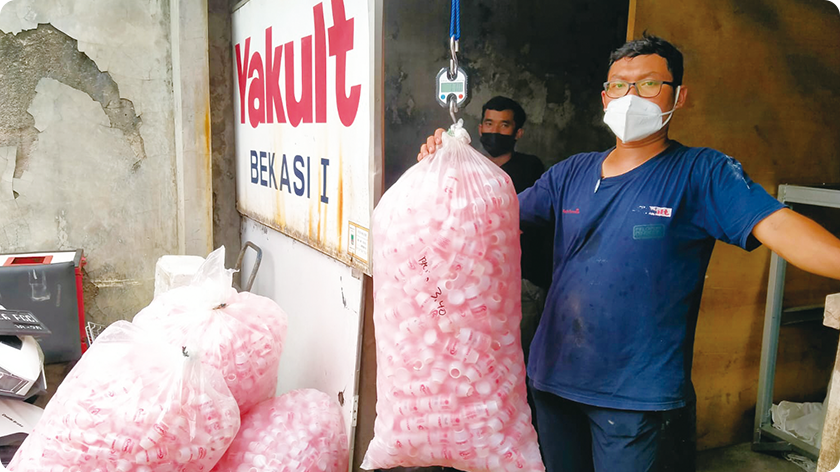
Collecting Yakult containers (P.T. Yakult Indonesia Persada)
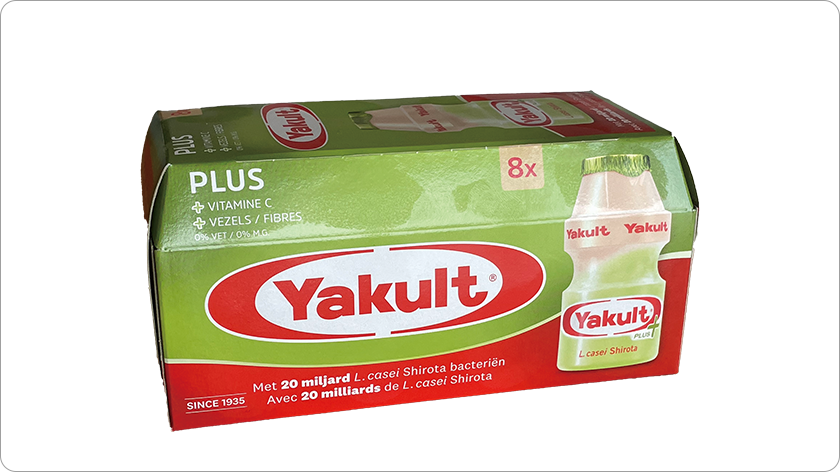
Carton packaging (Yakult Europe B.V.)

